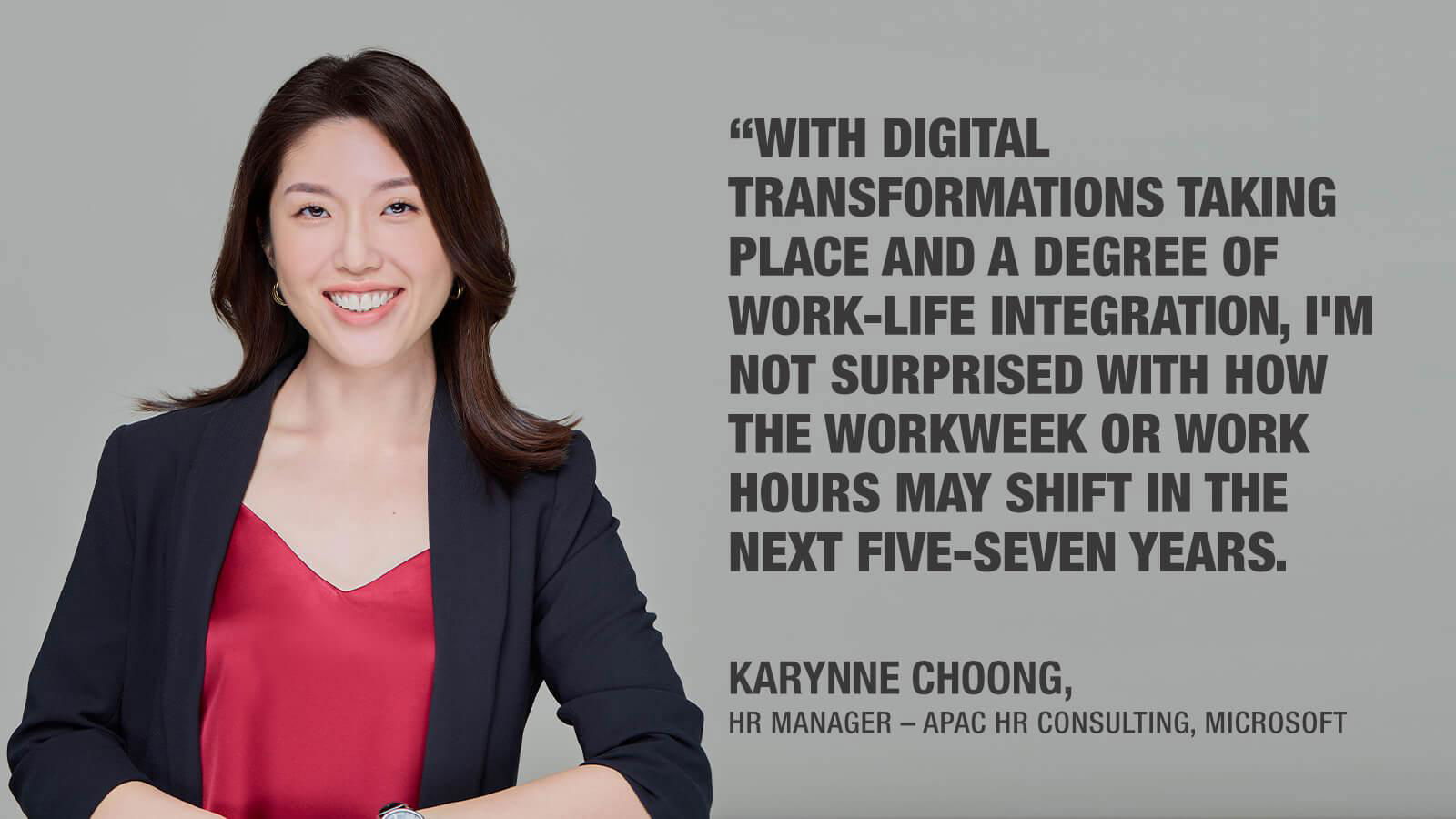share on
The move to a permanent four-day workweek would call for sustainable solutions, having a mature workforce that can engage and commit to it, and depends on the needs of individual organisations, Karynne Choong, HR Manager – APAC HR Consulting, Microsoft, points out.
Flexible work arrangements have always been part of the work culture at Microsoft, but the onset of the COVID-19 pandemic has further accelerated and strengthened the implementation, Karynne Choong, HR Manager – APAC HR Consulting, Microsoft (pictured above) tells Arina Sofiah.
Previously, the tech major did not have any policies on flexible work practices. Instead, they were based on a needs-based approach.
Now, a fully-fledged policy that guides employees' asks around working from a different city, country, or even hours has been implemented, and Microsoft strives to provide a grounding framework for a consistent employee experience, workplace accommodations, as well as a standard process that enables both work-life balance and business success.
Given this emphasis, the way Choong and her colleagues at Microsoft look at a four-day workweek is more through the lens of providing employees the flexibility to do what works best for them – whilst empowering the business.
"We are an ecosystem where businesses are interconnected, be it with our customers or partners," she explains. "Hence, if we were to implement a four-day workweek permanently, it would be pertinent to have sustainable solutions to ensure that the ecosystem continues to flourish.”
Another necessity she cites is having in place a mature workforce who engages and commits to four-day workweek arrangements to ensure sufficient coverage across the ecosystem; and at the same time being confident and at peace to step away from the intensity of work.
As such, Choong is clear that the ability to move to a shorter workweek depends on the needs of each organisation. For some, the five-day workweek rhythm has become very ingrained in the way of work. As such, it could appear challenging to trim working hours down to a four-day model.
Leader-led change management efforts would be essential to influence change and remove any barriers to enabling a successful transition.
She also cites the need for intentional efforts to be made for creating psychological safety as well as for enabling boundaries to be in place for employees to thrive in such a scenario. "Core values such as trust, respect, communication, accountability, and integrity would need to be second nature for employees to be successful in cultivating this new set-up.”
Looking to the future, while shorter workweeks may not necessarily become the norm, Choong sees this as part of a wider trend around a more progressive workforce truly being empowered through flexible work arrangements. "Employees having ownership of their responsibilities and being successful without being driven by 'rules' of five or four-day workweeks."
"With digital transformations taking place and a degree of work-life integration, I'm not surprised with how workweeks or work hours may shift in the next five-seven years," she concludes.
ALSO READ:
- Moving to a 4-day workweek is possible when the CEO believes in it: An Uncharted case study
An excerpt of this article first appeared in the Q1 edition of Human Resources Online's Southeast Asia e-magazine. View a copy of the e-magazine here, where you'll find power-packed features and interviews with leaders from Singapore, Indonesia, Thailand, the Philippines, the US, and more!
Photo / Provided
Follow us on Telegram and on Instagram @humanresourcesonline for all the latest HR and manpower news from around the region!
share on



